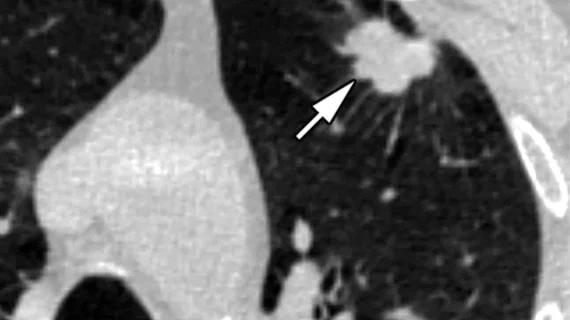Woman dies of lung cancer after radiologist fails to recommend follow-up for ‘large’ abnormality
A radiologist in New Zealand has been accused of breaching the Code of Health and Disability Services Consumers’ Rights after failing to make appropriate follow-up recommendations following the discovery of an abnormality in a cancer patient’s lung.
The area of consolidation was identified in 2016 when the patient, who was being treated for renal cell carcinoma at the time, completed a pre-operative CT scan prior to having her kidney removed. Although the radiologist did note the "large area of abnormality in the right lung” on the patient’s report, they did not make a diagnosis or recommend that the patient seek further evaluation of the area.
Consequently, the area was not investigated, and two years following the patient’s CT scan, she was diagnosed with advanced stage lung cancer. She passed away two weeks later, according to several New Zealand news outlets.
Also under scrutiny is the patient’s urologist, who was supposed to follow-up with the patient at 12 months post-op and order surveillance imaging in accordance with guidelines. However, the patient missed the appointment and was never rescheduled.
According to reports, the respiratory physician who treated the patient following her lung cancer diagnosis described her death as “totally avoidable,” as her cancer was clearly visible on her pre-operative scans from 2016 and could have been treated at that time.
Health and Disability Deputy Commissioner, Carolyn Cooper, determined that the radiologist had failed to provide services with reasonable skill and care by not recommending appropriate follow-up for the lung abnormality, while the urologist was found to have inadequate processes to ensure follow-up care.
Following the incident, Cooper recommended that the radiologist undergo clinical peer review of the standard of his radiology reporting. The urologist was made to reevaluate the practice’s follow-up care processes and report back on the changes implemented.
Neither of the clinicians has been identified for the public.

